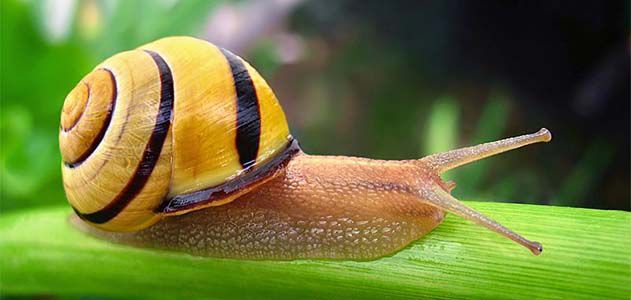By Hardy Jackson
Now I gotta tell you, the headline demanded I read the article.
“Snail killing party in Langan Park and Three Mile Creek this weekend.”
Was this some “you must be a redneck if . . .” joke?
Or was it the lead into a collection of “Southern Haiku”:
A New Moon
Flashlights pierce darkness
No night crawlers to be found
Guess we’ll gig some frogs
It was neither. Through the medium of the press the Mobile Baykeeper, the Alabama Division of Wildlife & Freshwater Fisheries, and the U. S. Fish & Wildlife Service put out the call for volunteers to show up on a Saturday morning to “help kill as many gastropods as possible.”
Come one, come all. Bring your boats, canoes, kayaks. Wear old sneakers so you can wade along the soft banks of streams and ponds. Wear old clothes because you are going to get wet and dirty and snail slimed.
Now I do not enjoy killing for the sake of killing.
As a boy I did, as boys do. I had a BB gun and with it I put a small dent in the bird population.
I also took part in a rat killing. My Daddy, a couple of his friends, and I were moving some hay that was in the back of a crib where we also kept corn, and out from behind one bale ran a rat. Daddy and his friends armed themselves with stout sticks, and with me as the appointed bale mover, they prepared for the killing.
Never having been party to such an undertaking, I assumed that we’d kill a few – maybe a dozen – and be done with it. That was when I learned that rats breed, well, like rats, and when I began moving the bales the crib exploded with rodents.
So I grabbed a stick and joined in the slaughter. It was great fun for everyone, except the rats.
“Though boys throw stones at the frogs in sport,
The frogs do not die in sport, but in earnest.”
Bion (Greek poet, ~100 BC)
And they say there is no value in a liberal arts education.
I no longer kill for sport. I have not hunted in years and when I fish it is for the pot. If I catch something that cannot be used, I let it go.
However, this snail thing might just cause me to reconsider the mass slaughter of a species.
The Mobile area killing was undertaken to get rid of the Amazonian apple snail, a nasty-looking sack of ooze about the size of a baseball that has made the list of the world’s 100 worst invasive species. It was once legal to own one so folks kept them in their home aquariums. Likely they grew too big, started crowding out the fish and hermit crabs, and rather than kill them, the kind hearted owner threw them into a nearby pond. You think rats breed fast? No one has ever used the term “snail’s pace” to describe the Amazonian reproductive prowess.
They are no longer legal.
Not that it matters, for they are spreading – Latin America, Southeast Asia, Hawaii, California, a pond in Yuma, Arizona, Baldwin County, Mobile – eating native plants and leaving behind murky, algae-filled water. If they get into the Mobile-Tensaw Delta they may attach their eggs to vessels heading upriver and pretty soon there will be snails among us. And since earlier efforts to eradicate them came to naught, the call went out for the public to come and kill snails – smash ‘em, squash ‘em, pound ‘em in the ground.
And Mobilians did.
How successful were they? Time will tell.
But if this doesn’t work, I have an alternative they may want to try.
Eat ‘em.
Now I have eaten snail – escargot you know – and it wasn’t bad. Over in Southeast Asia the Amazonian apple snail is caught, cleaned, cooked, chopped up and eaten with rice. I am sure Southern foodies could come up with some way to turn the Amazonian apple snail into a Dixie dining delight.
‘Course that could backfire on us, as good ideas often do down here. Popularity could increase the demand for the snails and to meet that demand, snail farms will pop up all over the region.
Rather than fewer snails we would end up with more, ready to escape into the wild. Then we’d have to have an even bigger snail killing.
I think I better think this through again.
Harvey H. (“Hardy”) Jackson is Professor Emeritus of History at Jacksonville State University. He can be reached at hjackson@cableone.net.

